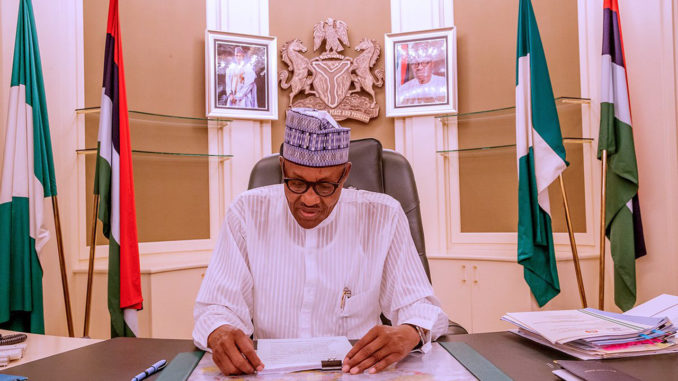
The 2020 budget proposals of the Federal Government appear to be currently beset with many challenges akin to what currently plagues the current 2019 budget.
In preparation for the presentation of the 2020 budget to the National Assembly, the recent release of the 2020-2022 Medium Term Expenditure Framework and Fiscal Strategy Paper (MTEF/FSP) by the Minister of Finance has thrown some light into the likely nature of public budgeting in the next few years. The message appears very clear – Nigerians should tighten their belts as the journey ahead would be turbulent.
The MTEF/FSP document, which outlines the Federal Government’s fiscal policies and strategies as well as macroeconomic projections for the 2020-2022 period, by law is expected to adopt its objectives and strategies in line with the Fiscal Responsibility Act of 2007.
The structure and overall content of the document appear alarming and largely suggestive of government’s incapacity to deliver public goods to the ever-demanding citizenry, or, in the parlance of the ruling party, take the country to the “next level”. Hence, with the Federal Government’s admittance, the mid-term fiscal challenges are real with the critical issues raised in the document having wide implications for the overall economy.
For example, the projection for the budget benchmark price for crude oil was reduced from the $60 of 2019 to $55 in 2020 while the projection for crude oil production was also reduced, from the 2.3 million barrels per day of 2019 to 2.18 million barrels in 2020. The exchange rate was retained at N305 to the US dollar.
One of the very critical changes in the 2020-2022 Medium Term Expenditure Framework is the restructuring of public spending to the disadvantage of capital expenditure and infrastructural development in the country. The new strategy document implies that for the 2020 budget, capital expenditures will now account for only 21% of the total budget as against 32% in 2019 and 34% in 2018. This change thus represents a proposed cut of capital expenditures by about N1.16 trillion in 2020 from the N2.92 trillion in 2019, implying that proposed capital expenditure in 2020 will stand at a mere N1.76 trillion. While the proportion of the budget going to capital votes is decreasing, that going to recurrent expenditure understandably is increasing from 66% of the total budget in 2018 to 68% in 2019 and now 79% in 2020. Why should this be allowed to happen in a country with a very poor state of public infrastructure? This appears very symptomatic of very poor public financial management, which should not, in any circumstance, be sustained.
One of the reasons for the over bloating of government recurrent expenditure, according to the Minister of Finance, in her briefing of the Press on the MTEF/FSP document is the creation by President Muhammadu Buhari, of new ministries and the consequent appointment of new ministers, with the Federal cabinet larger than in the past four years. One wonders whether the expansion of the cabinet is necessary at this time of economic emergency, in an economy that recently came out of recession and of which the recovery is considered to be very fragile.
In addition, the mere fact that even the minimum wage signed into law by Mr. President as far back as April 2019 is yet to be implemented should suggest that the revenue challenges the country is going through should discourage the creation of new ministries at this time. What the government should have seriously considered in these austere times is the merging of ministries and reduction of wastes across the entire public sector.
The revenue challenges facing the government are quite real and it has to seriously consider “thinking outside the box” to salvage the very bad situation in which the country has currently plunged itself. Parts of the causative factors include the poor policy articulation in the past few years as well as the prolonged lingering of the fuel subsidy imbroglio, which need to be revisited. The other issue is the doubling of the public debt burden in the past four years and its debt service implications. Debt service payments have been a challenge and will still be an issue in public financial management in years to come, in view of the dwindling revenue profile as evident in the MTEF/FSP document. Hence the government should be extremely cautious in embarking on any further borrowing except those tied to specific capital projects even though their effect on public budgeting in the medium to long term cannot be wished away.
While the Federal Government is battling to keep its fiscal house in order, the states or sub-national governments appear really worse off. First, apart from their allocation from the federal allocations being adversely affected by the proposed reduced revenues to the federation account, the proposed repayment of the N650 billion Central Bank of Nigeria loan to the states in 2015 by source deduction from their federal allocations is another source of worry. One wonders whether many of the states would be in a position to conveniently pay the minimum wage, despite the little gains that can be derived from the proposed increase in the value-added tax from 5% to 7.2%
Nigeria is currently at the crossroads. Governments across the federation need to do a thorough appraisal of their public financial management strategies. If nothing novel is brought to the table in addressing the challenges as articulated in the MTEF/FSP document, then the euphoria of any new “next level” as promised by the ruling party may turn out to be a mirage. It is hoped the new Economic Advisory Council will come to the rescue in charting a sustainable economic growth path for the country.
END

Be the first to comment